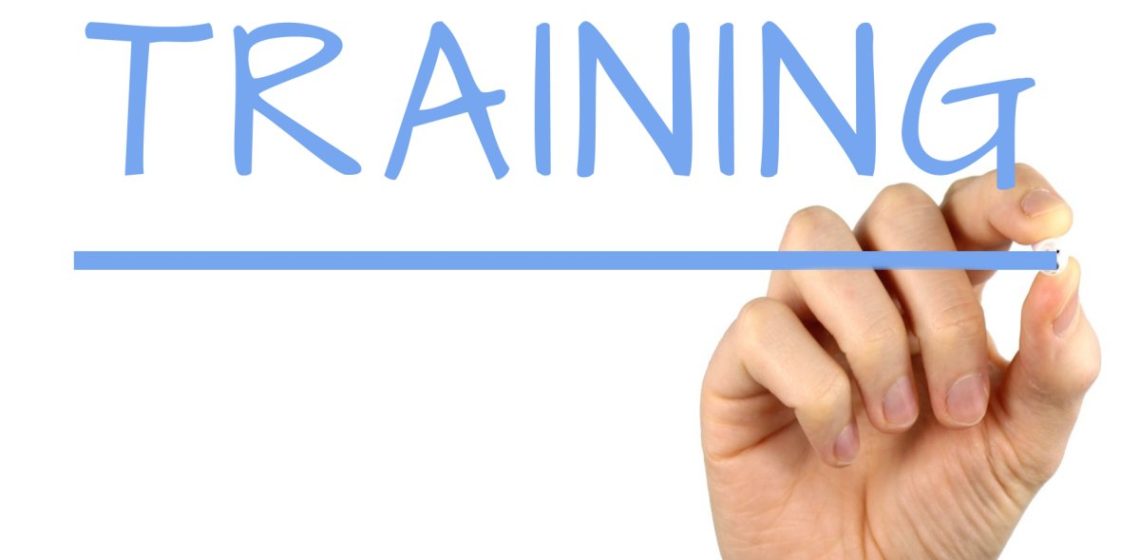THE BUSINESS OF TRAINING AND HOW TO TAKE YOUR TRAINING SKILLS TO THE TOP AND BE PAID HANDSOMELY
Kayode Ibukunoluwa-Micah /Training and learning are intricately interwoven, markedly different in approaches but are an interestingly unique aspect of the educational process. Training is the process of giving information, communicating knowledge directed at the development of skills or skill sets that are necessary for the performance of a given task or job function.
Learning is the process of taking in or absorbing learned information with the objectives of increasing and retaining such skills and abilities and also putting them to effective and productive uses. Learning promotes engagement between instructor and trainee and ensures that a synergy is established between the methods of training delivery, the ability of the trainee to absorb information, retained it and put them to use.
Amazingly, recent research finding has shown that one of the reasons behind the drop in training budget in Nigeria is simply because training does not necessarily translate to learning or improved job performance. Corporate trainers, facilitators, instructors, HR practitioners, training consultants content developers would fare well if they understand the modern thinking in learning, trends in training needs evaluation, planning the training, delivering, managing in-class and e-Learning platform and other post learning interventions.
THE IMPERATIVE OF TRAINING AND LEARNING
I have interacted with individuals with brilliant ideas and experiences that would strategically benefit upcoming generations and the world at large but their major challenge and constrain bothers on their inability to put such knowledge to use and transfer same to those that it would be useful too. For instance, we learned in Africa of experienced birth attendants, traditional bone-setters who failed to communicate their knowledge to those behind them; they died and were buried with such rich knowledge and endowments.
Training and the learning business is a multi dollar business with global appeal. We have individuals who are paid in dollar per hour to deliver lecture, train and retrain staff for corporate organizations both in government and the private sector. Simplistically, training and learning business enables you to convert your knowledge, capabilities, vocal ability and technological skills into money.
THE FUTURE OF THE TRAINING BUSINESS
Training and learning is an enduring business with a lot of potentials for professionals and aspiring trainers, instructional designers, ICT practitioners, instructors, and facilitators. It is a multi billion dollars industry worldwide and it holds great potential in Nigeria.
Training and learning today is speedily moving away from the traditional classroom-style training to corporate e-Learning and to a combination of technologically driven online, mobile and computer-based learning and some piece of classroom learning format (Blended Learning and self-directed self-paced learning). The deployment of training from onshore locations to the remotest part of the world is generating billions of dollars around the world.
STATISTICAL EVIDENCE
In 2015 average spending on corporate training worldwide was over $ 130 billion. In the US alone total spending on training was about $ 70.6 billion.
Taking the US as our example, one of the indicators that show that an economy is doing well or out of recession is the surge or sudden attention paid to training. It could be seen that following the global financial crises of 2008 and 2009 during which times we had a negative drop in training budget. However, in the preceding years, we could see an upward movement in training spending.
The same is for other countries and Nigeria in particular. Today in Nigeria efforts are in top gear at diversifying the Nations economy from her Crude oil-monolithic economic to gas exploration and conversion, agriculture, mineral exploration, ICT and knowledge driven economy. These moves would require the transfer of knowledge, extensive investment in training and manpower development. And so for any forward looking and progressive individual, this is the right time to sharpen your skills and position yourself for the New Nigeria where knowledge rules.
THE NEW FACE OF TRAINING AND LEARNING
As a trainer and learning facilitator with over a decade and half experience, it is becoming increasingly clear that training is fast moving away from the traditional stand-and-deliver instructor led classroom setting style to technologically training methodology. In todays world, the trend is now on:
Online or computer-based training deployment
Blended Learning techniques
Mobile Devices
Gamification
Virtual Classroom/Webcasting and video broadcasting training format e.t.c.
OPPORTUNITIES IN TRAINING
The world today is a global market, where information and development are no longer restricted to a geographical space just at a click of the button you have the world on your lap. In todays economic reality you can be engaged productively in India, USA, Poland, Saudi Arabia etc right here from Lagos Nigeria and be paid in the global currency with traveling. If you are versatile and understand the technicalities, you can deploy training to a global audience right from your room or office in Abuja and people listen to you around the world. Training is truly an international business with many opportunities.
DIVERSE OPPORTUNITIES IN TRAINING
Research and Development ( Skills Gap Analysis, Need Analysis etc)
Content Development
Instructional Design
Online marketing of training
Printing and Design of training Manuals
Hall and training Room Rental
Training outsourcing and Internal/external Consulting
Training Equipment Rental ( Projector, PAS, etc)
Training Delivery ( Instructor, Trainer, Teacher, Facilitator, Curator, Change Agent etc)
Post Training and Learning Evaluation and Impact Assessment
Development of Learning Management System, rapid e-Learning tool and Application Simulation Tools e.t.c.
The training business if properly harnessed offers tremendous opportunities for so many people across different background and sectors of the economy. It offers a lot of space for different professionals and investors. All that is required is for interested persons, trainers and entrepreneurs to step into the world of learning and contribute to the development of the economy and get rewarded handsomely.
ABOUT THE WRITER
Kayode Ibukunoluwa-Micah is a certified international professional trainer for the American Certification Institute and the International Purchasing and Supply Chain Management Institute, USA. He is a member of the Nigeria Institute of Directors and holds a post graduate Degree in Managerial Psychology from the University of Lagos. Kayode is the Principal Partner of Darach Associate and Marketing Consulting Nigeria Limited.
I am a blogger and analyst on HR, Customer Service, outsourcing, and marketing. You can follow me @askkayodemicah.blogspot.com
ANNOUCEMENT
Enrollment is now no for the CERTIFIED INTERNATIONAL PROFESSIONAL TRAINER (CIPT) program.
This is a core certification program of the AMERICAN CERTIFICATION INSTITUTE and confers on qualified candidates the designation of CIPT. This certification program will expose you to the modern trend in training and learning. Certification issued has global acceptance and positioned you for top-notch career opportunities.
TRAINING SCHEDULE
See details at www.darachassociate.com or simply send an email request to info@darachassociate.com
Venue: Lekki, Lagos-Nigeria.
Registration details are available @ www.darachassociate.com
Send an email for inquiry to: info@darachassociate.com
Please view others courses both for ACI and the International Purchasing and Supply Chain Management Institute @www.darachassociate.com
Or call Kayode Ibukunoluwa-Micah on +2347088172236, + 2348033356911 for corporate or group presentation.
References:
1: Dr. LeRoy H. Graw ” Handbook for Training Managers” ACI 2007
2) Association for Talent Development ” 2014 State of the Industry Report” November 2014
3) 2015 Training Industry Report, Training Magazine
4) Josh Bersin, Contributor ” Spending on Corporate Training Soars: Employee Capabilities Now A Priority February 4, 2014 www.forbs.com
5) National Bureau of Statistics, 2016: Sustaining the momentum in Nigeria’s data revolution.
Sharing is caring!





 Copyright © Kayode Ibukunoluwa-Micah
Copyright © Kayode Ibukunoluwa-Micah